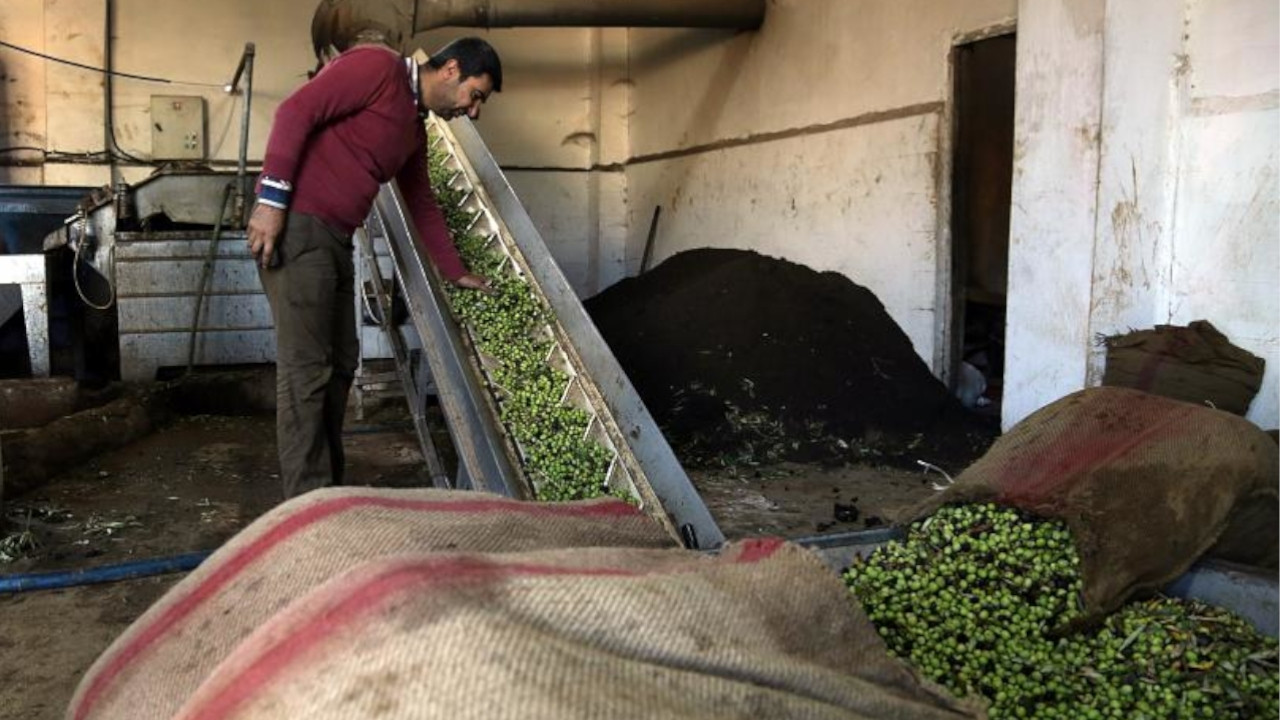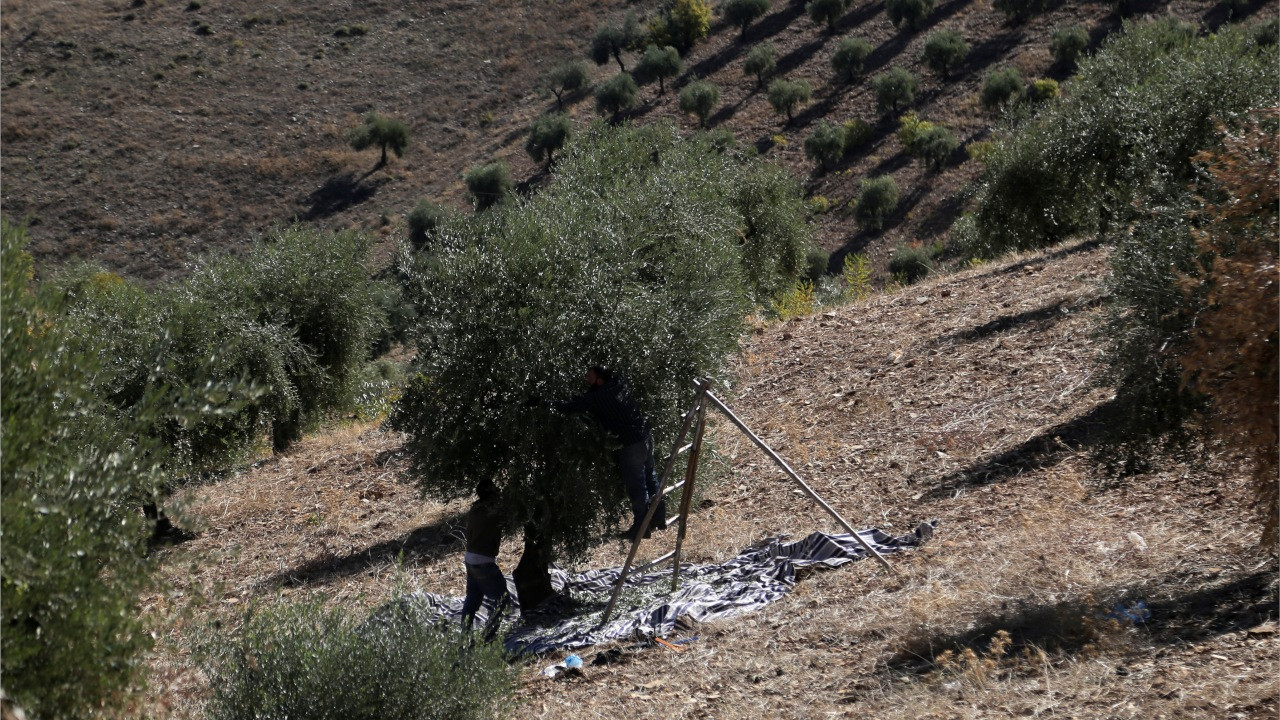Syrian entrepreneurs employ 7 percent of their communities in Turkey, study reveals
A recent report titled "Turkish–Syrian Business Partnerships II" published by Building Markets sheds light on the ways Syrian-owned businesses and Turkish–Syrian business partnerships are contributing positively to the Turkish economy. A compelling statistic from the study is that “Syrian entrepreneurs provide a living for 7 percent of the Syrian community in Turkey."
K. Murat Yıldız / Duvar English
According to a recent statement from the Turkish Interior Ministry, the number of Syrians officially registered in Turkey is 3.64 million. In October, Interior Minister Süleyman Soylu noted that over 400 thousand Syrians have returned to Syria ‘voluntarily’ after Turkey established safe zones within its cross-border operations.
It has been a lingering question of whether the majority of Syrians will return to their country once the conflict in Syria subsides. At the beginning of the civil war, Syrians were considered temporary guests and many were sincerely welcomed into Turkey. President Erdoğan even went so far as to incorporate a historic İslamic dimension to Turkey's approach to the influx of Syrian refugees, calling them Turks Ansar (The Helpers).
The original Ansar were several tribes from Medina that helped and hosted the Prophet Muhammad, his family, and followers upon their arrival into the city after migrating from Mecca.
This positive view of Syrians was strengthened by President Erdoğan’s Islamic rhetoric and talk of traditional Turkish hospitality. However, as more and more Syrians settled into the cities and their presence became more visible, discomfort emerged among Turks.
As the Turkish economy began to deteriorate and cultural differences surfaced, uneasiness towards Syrians became noticeable, even in cities like Hatay with local ethnically Arab populations.
According to Turkey's Refugees Association, there are currently at least seven cities in Turkey in which Syrians comprise over 10 percent of the total population. In Kilis, near Turkey's border with Syria, the Syrian population is over 75 percent.
In places like Istanbul, Hatay, Gaziantep, and Mersin, many small businesses, such as bakeries, grocery stores, and tea houses, complain about Syrian customers and businesses. “Syrians never buy from us” and “they don’t sell any Turkish products,” are common complaints. It has also been argued that local officials are not as strict with rules and regulations for Syrian owned businesses. Local authorities in Mersin told Duvar English that, "in the beginning, Ankara told us to give some leniency to Syrian businesses," but that this is no longer the case.
Resentment toward Syrians has also been on the rise among Turkey's Kurdish population, who have historically comprised the majority of Turkey’s cheap labor market. Kurds have long been scapegoated for unemployment in places like Mersin that traditionally receive large amounts of migration from the eastern parts of Turkey. Today, filling a similar position, Syrians have become the new black sheep in Turkey, not only among Turks but also Kurds, in areas that are going through severe economic hardship.
Yet, a recent report titled "Turkish–Syrian Business Partnerships II," published by Building Markets, a New York-headquartered NGO that collaborates with many countries and organizations, such as the World Bank, OECD, and USAID, sheds light on the ways Syrian-owned businesses and Turkish–Syrian business partnerships are contributing positively to the Turkish economy.
According to the report, “since the Syrian civil war began, Syrian entrepreneurs have bootstrapped their way to starting nearly 10,000 registered firms that are reinvesting into the local economy, including serving as suppliers of goods and services to the Turkish public and private sectors. They have also successfully contributed to the Turkish market by bringing with them new products and services, client networks, and niche skills in manufacturing and trade industries that have paved the way to new export destinations across the Middle East and North Africa (MENA) region.”
A compelling statistic from the study is that “Syrian entrepreneurs provide a living for 7 percent of the Syrian community in Turkey,” and are “accounting for approximately 562 million USD of capital” despite 80 percent of them being micro-sized businesses with less than 10 employees.
According to a survey conducted by the United Nations Development Programme (UNDP) in 2018, Syrian companies with Turkish partners comprised a mere 3.7 percent of the total number of companies.
“In 2011, the factories of soft soap in Nizip, Gaziantep were closed down. Now, Syrians are trying to rejuvenate soft soap production, and they have built around 30 factories. One of which exports to eleven different countries, including Japan, Holland, and Canada. This is a good example of the value of Syrian entrepreneurs” reads the Building Markets report.
Success stories go unreported
Syrian entrepreneurial success stories like this, which could have a positive effect on public opinion, are rarely reported in media, as pro-government news outlets publish mostly propaganda-style news about Syrians that exacerbate negative sentiments.
One recommendation from the report suggests that the Turkish government should work to “communicate successful examples of Syrian-Turkish business partnerships and Syrian entrepreneurs creating jobs in Turkey," as doing this "will shed a positive light and overcome cultural and social prejudices.”
Another notable discovery from the Building Markets survey is that 31 percent of Syrian owned enterprises are exporters; Iraq, Syria, Libya and Saudi Arabia being their top export destinations.
This fact hasn't gone unnoticed by Turkey’s Foreign Economic Relations Board (DEİK). Local chambers of commerce and business associations have set up desks and started projects to further develop the export capabilities of Syrian enterprises, especially to the MENA region.
In the report, the advantages and disadvantages of Syrian enterprises were also listed. The advantages include MENA market knowledge and experience; language skills (Arabic/English); export ability (direct business relationships with Syria, as well as the Middle East, Gulf, and North Africa countries); specialized manufacturing skills, access to communities of Syrian people (in Turkey and abroad), cash transactions (they prefer to work in cash). Among the disadvantages were: social prejudices; Turkish language barrier; lack of experience in the local market; lack of technological infrastructure (digitally weak, most have no online presence); lack of knowledge on Turkish certifications, standards, and legislation; lack of awareness about accessing business incentives and SME support schemes; and difficulties in financial inclusion and access to financial services (mainly due to international sanctions on Syria).
Few think of returning
According to the German government, 2.8 million Turks are living in Germany since the arrival of the first 55 Turkish ‘guest workers’ (Gastarbeiter) in 1961. Like the Syrian population in Turkey, they were originally seen as guests by the host country and were referred to as such. This generation of Turks went to Germany in order to make money and many planned to return to their homeland. However, now there exist three generations of Turks in Germany, and very few are thinking of returning.
Research conducted by the Turkish German University, which was presented to the Turkish Parliament last month, found that Syrians who said they will never return to Syria rose to 51.8 percent from 16.7 percent in 2017, while 30 percent said they will return to Syria when the war is over compared to 60 percent who said the same in 2017.
Last February, during a visit to Turkey, Undersecretary Winkelmeier-Becker from the German the Ministry of Economy and Energy noted that over 100 thousand businesspeople of Turkish origin contribute 50 billion euros annually to the German economy and have created jobs for over 100 thousand people. However, as has been frequently noted by top German officials, the full integration of Turks into German society has not been successful and continues to pose a problem. There are Turks who have been living in Germany for 60 years but don't speak German. Still today, a large number of Turks prefer to live in fully Turkish neighborhoods. Therefore, successful businesses don't necessarily equate to successful integration.
A Turkish businessman from Hatay, who preferred to remain anonymous, told Duvar English, “In these times of extreme economic hardships for people and businesses, President Erdoğan must stop repeating that his administration has spent 40 billion USD and that 'if necessary he will spend another 40 billion' for Syrians. Statements like this do more harm than good. If the president really wants to help, he can do so by spending more money on socio-economic and cultural programs that will promote integration, minimize cultural clashes, and most importantly teach Syrians to fish rather than give them little fish for free.”
Regarding difficulties Syrian businesses face, the Hatay businessman added, “I know of successful Syrian businesses here, but often they get stuck in the dark corridors of bureaucracy and the language barrier is a serious problem. I think there should be more focus on these issues.”
'Running a business isn't synonymous with being successfully integrated'
According to Omar Kadkoy, an analyst and expert on the issue at The Economic Policy Research Foundation of Turkey (TEPAV) based in Ankara, “Integration encapsulates many subjects, and participating in the labor market in the form of entrepreneurship is one of them. Yet, running a business isn’t synonymous with being successfully integrated, at least not in Turkey. First and foremost, there is no integration policy in Turkey. Thus, the lack of checks and balances generates structural shortcomings such as banks' arbitrary decisions to include or exclude Syrian entrepreneurs from fully accessing banking services, which are critical for any business. Another implication is the poor command of Turkish among many Syrian entrepreneurs. As a result they face difficulties in many business-related areas and miss potential opportunities for growth.”
“In order to change prejudices against Syrians, we must create inclusive job opportunities. Our estimations from two years ago suggest that Syrian entrepreneurs created tens of thousands of jobs for both Syrians and Turks. Yet only the people who read our report know that. Therefore, changing the prejudices of the greater public requires periodic awareness campaigns about the positive contributions of Syrian entrepreneurs,” Kadkoy added.
When asked about the integration of Turks in Germany, Kadkoy told Duvar English that, “the success stories we hear are double-edged swords. On the one hand, they reflect integration, but on the other hand, not everybody should be expected to become Özlem Türeci or Uğur Şahin. Integration is a two-way street with boxes to check on both sides. It is normal for some to succeed in ticking all the boxes while others do not. The most important thing is to balance everyone's rights and obligations in order to generate and sustain social cohesion.”

 Olive oil from Syrian city of Afrin intended for export floods Turkish marketEconomy
Olive oil from Syrian city of Afrin intended for export floods Turkish marketEconomy Turkey seeks to export 90,00 tons of Afrin olive oil to US, says local officialEconomy
Turkey seeks to export 90,00 tons of Afrin olive oil to US, says local officialEconomy We're used to destruction, Syrian migrants who saved İzmir quake survivors sayDomestic
We're used to destruction, Syrian migrants who saved İzmir quake survivors sayDomestic Unemployed migrant women in Turkey lured to Syria by jihadists with job promisesHuman Rights
Unemployed migrant women in Turkey lured to Syria by jihadists with job promisesHuman Rights